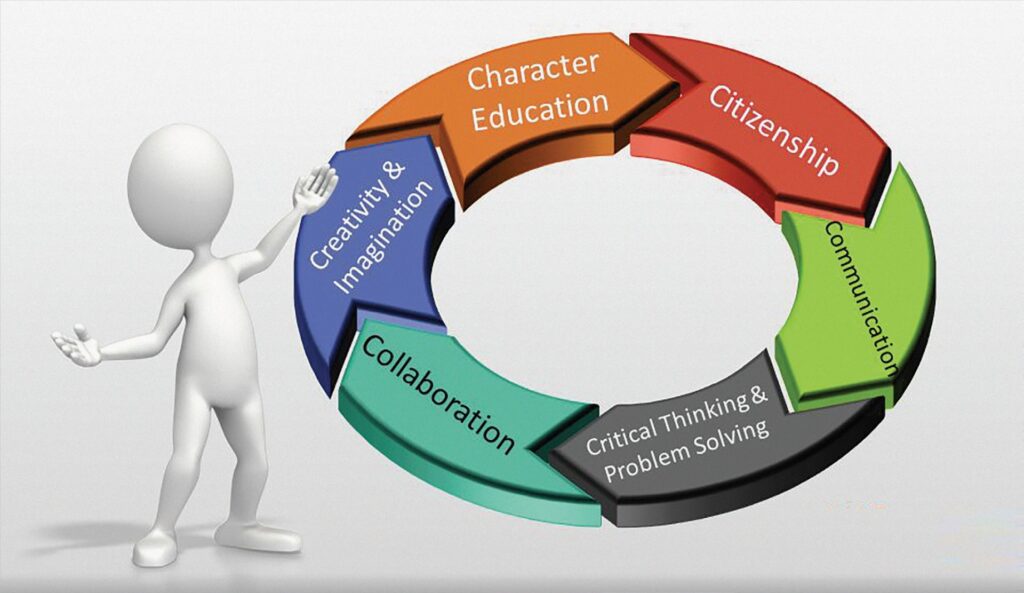
Office politics isn’t just about gossip, rivalry, or power plays. It’s also about informal influence, unwritten power structures, and the subtle rewards of loyalty. Across startups, legacy corporations, and especially founder- or family-led businesses, a distinct phenomenon emerges: a select few who operate beyond their Key Result Areas (KRAs), serve as unofficial advisors to the top, and enjoy the trust of leadership.
These individuals appear privileged. Yet paradoxically, they rarely rise meaningfully in the organisational hierarchy. Their loyalty becomes their ceiling.
Defining the Invisible Ladder
Office Politics can be defined as:
“The use of power and social networking within an organisation to achieve changes that benefit the individual or the organisation.” — Oxford Dictionary of HRM
But the more dangerous kind of politics is not disruptive; it is quietly assimilated into the system.
In this context, the ‘inner circle’ refers to employees who:
– Report beyond their formal KRAs
– Serve as emotional extensions of leadership
– Act as filters of information – both upwards and downwards
– Are trusted, but not truly empowered
 The Illusion of Power: Why They Rarely Grow
The Illusion of Power: Why They Rarely Grow
At first glance, these individuals appear powerful:
– They are present in informal meetings
– They deliver confidential messages
– They represent the ‘voice’ of the boss in many conversations
But in reality:
– Their influence is person-dependent, not institutionally recognised
– Their roles are undefined, which makes promotion or transition difficult
– They are often bypassed for formal leadership roles that require structured thinking, strategic execution, or people development skills
“Power without a title is not empowerment, it’s entrapment.” — Adapted from Robin Sharma
These individuals grow in comfort, not in capability. Their fate is tied to the leader, not to the business.
Why Organisations Fall into This Trap
1. Leaders Prefer Familiarity Over Formality: Trust is built faster through emotional comfort than structured performance reviews.
2. Informal Channels Appear Efficient: Decision-making feels quicker when routed through ‘trusted’ voices. However, it breeds subjectivity and silences dissent.
3. There Is No Push for Rotation: Inner circle members are often so good at ‘one thing’ (e.g., being close to the boss) that they are never moved, never stretched.
4. Flattery and Filtering Reinforce the Boss’s Echo Chamber: They start telling the leader what they want to hear not what they need to hear.
Psychological Drivers of the Inner Circle Trap
From a behavioural lens, these individuals are drawn to proximity for three reasons:
– Validation: Being trusted gives them a sense of self-worth.
– Security: Informal loyalty protects them from formal scrutiny.
– Access: They believe visibility will translate into opportunity.
But over time:
– Their learning stagnates
– Their credibility suffers among peers
– Their dependence grows on the very person whose trust they cherish
“Loyalty is noble but loyalty without growth is servitude.” — Anonymous
When Loyalty Replicates Itself: The Rise of Mini Power Centres
This behaviour doesn’t just stay at the top. Over time, the boss’s trusted few begin to replicate the same model downward, creating miniature circles of loyalty and influence around themselves. Each becomes a micro power centre, complete with a quiet expectation: “You be loyal to me, and I’ll take care of you.”
Subordinates are drawn in not by formal authority, but by the unspoken promise of protection, favour, or faster access to the top.
– Team members are encouraged to share what others are saying in the cafeteria or on calls
– Office gossip becomes strategic currency
– Feedback travels upward not as insight but as filtered narratives
– Performance takes a back seat to ‘whose side you’re on’
What starts as informal influence becomes an underground information network. Trust erodes. Creativity dies. Everyone becomes cautious of what they say and to whom.
“In a system where loyalty matters more than truth, every conversation is a risk.” — Anonymous
Ironically, even the original leaders of such circles become prisoners of their own networks, trapped in webs they once wove.
The System Suffers Too
When such structures persist:
– Performance management loses credibility
– Top talent exits due to blocked career paths
– The organisation becomes personality-driven, not process-driven
– Succession planning fails, as informal influence is non-transferable
Eventually, the business either plateaus or suffers during leadership transitions.
What Leaders Must Ask Themselves
– Am I building an ecosystem of dependents or decision-makers?
– Do my trusted few grow beyond me or just orbit me?
– Is my leadership scalable without these informal intermediaries?
Balancing Trust and Professionalism
To be clear, trust is essential. Every leader needs a core team they can rely on. But:
– Trust must be backed by role clarity
– Informal influence must evolve into formal capability
– Loyalty must lead to leadership readiness
“If people are always loyal but never empowered, you’ve built a following, not a team.” — Simon Sinek (adapted)
The Way Forward
For Leaders:
✓ Acknowledge the existence of the informal circle
✓ Give such individuals structured development pathways
✓ Reward competence, not just allegiance
✓ Build a culture that allows dissent, debate, and distributed decision-making
For Inner Circle Members:
✓ Seek formal mentoring, not just informal appreciation
✓ Expand your exposure to other departments
✓ Understand that growth lies in capability not just closeness
✓ Don’t fear being dispensable – fear being irreplaceable only to one person
Conclusion: Loyalty is a Great Place to Start But a Terrible Place to Stop
The inner circle can be an incubator or a trap. It all depends on whether the organisation allows its members to graduate into structured leadership. If loyalty remains the only currency of influence, both the individual and the organisation suffer long-term consequences.
The real test of leadership?
Not how many people orbit you but how many outgrow your orbit and lead on their own.
(Bhetwaal is senior Vice President of Jagdamba Motors Pvt Ltd. He has over 30 years of experience in the corporate sector in Nepal. During his career he has worked with some of the biggest companies and brands especially in the Automobile Domain)



